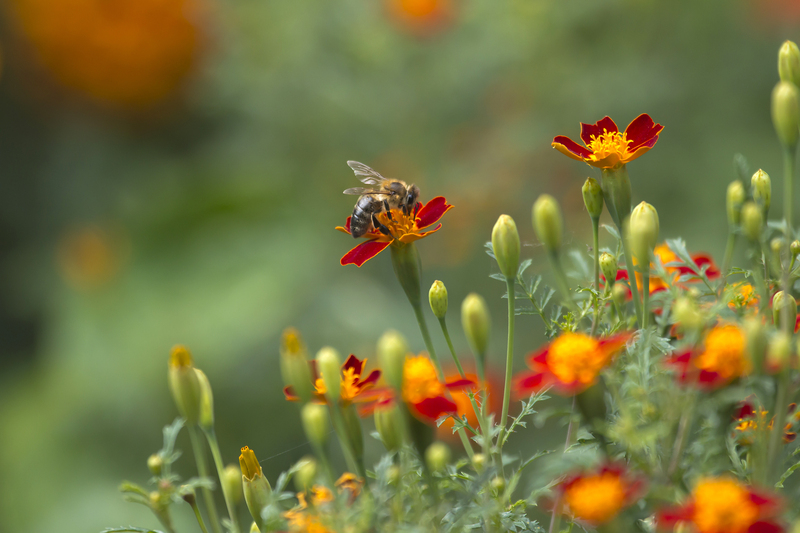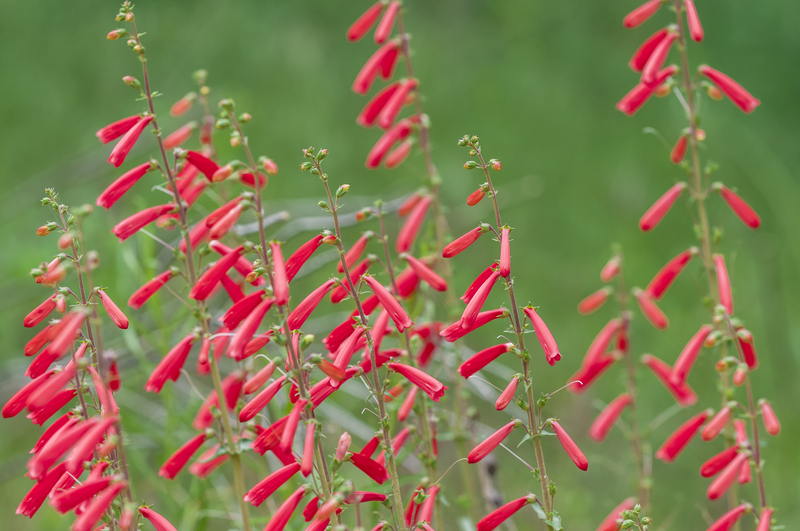Cultivate Excellence with 3 Weed Control Tips
Posted on 22/06/2025
Cultivate Excellence with 3 Weed Control Tips
Are you aiming for a thriving, weed-free garden or a flourishing lawn that stands out with perfection? Effective weed control is the cornerstone of successful gardening. Managing invasive plants not only improves aesthetics but also boosts plant health and yields. In this comprehensive guide, we delve deep into how you can cultivate excellence by mastering effective weed management strategies. Read on for practical and science-backed weed suppression tips that will transform your gardening game.

Understanding the Importance of Weed Control
Before diving into the best weed control tips, it's essential to understand why controlling weeds matters. Weeds fiercely compete with your crops, flowers, or turf for vital resources such as water, nutrients, space, and sunlight. When left unchecked, these undesirable plants can:
- Reduce crop yields and flower blooms
- Attract pests and diseases
- Interfere with garden aesthetics
- Damage lawn health and uniformity
- Cause soil degradation
Proper weed suppression techniques allow your desirable plants to thrive, leading to a healthy garden that exudes excellence all season long.
3 Proven Weed Control Tips to Elevate Your Garden
To achieve that picture-perfect, well-managed garden, adopt the following top weed management strategies. These tips incorporate both prevention and removal, ensuring lasting results and sustainable gardening.
1. Start with Mulch for Outstanding Weed Suppression
One of the most effective weed control methods is the strategic application of mulch. Mulching acts as a natural barrier, depriving weeds of the sunlight they need to germinate and grow.
- Organic Mulches such as straw, wood chips, grass clippings, bark, and compost not only suppress weeds but also improve soil structure and fertility as they break down.
- Inorganic Mulches, like landscape fabric or black plastic, provide effective coverage for larger areas and long-term suppression while minimizing maintenance.
Application Tips for Mulch:
- Apply a 2-4 inch layer of mulch around plants and across bare soil areas.
- Keep mulch a few inches away from plant stems to prevent rot.
- Replenish mulch annually to maintain its effectiveness.
*Pro Tip*: Apply mulch after a heavy rain or watering session when the soil is moist. This creates a strong barrier and gives your garden a head start over weeds.
2. Practice Smart Plant Selection and Spacing
Another vital strategy for excellence in weed control is selecting appropriate plants and strategic spacing. By maximizing plant density, you minimize open spaces where weeds can take root.
- Plant Cover Crops: Use fast-growing cover crops (like clover, rye, or buckwheat) in between beds or during fallow periods to outcompete weeds and improve soil health.
- Choose Groundcovers: Low-growing perennials such as creeping thyme, sedum, or ajuga can form a living mulch, minimizing room for weeds.
- Proper Spacing: Follow recommended planting distances for your crops or ornamentals. Plants too far apart invite weeds; too close leads to competition and weak growth.
*Did You Know?* Intensive planting methods such as square foot gardening and intercropping have been proven to substantially reduce weed pressure by limiting open soil.
3. Employ Consistent Manual and Mechanical Weed Removal
Regular, timely weed removal is key to maintaining a flourishing weed-free landscape. Combine manual weeding techniques with mechanical tools for maximum efficiency.
- Hand Pulling: Remove weeds by hand when the soil is moist. Grasp weeds low down to ensure you extract roots, especially for perennials like dandelion or thistle.
- Hoeing: Use a sharp hoe to slice off weeds at the soil surface. This is effective for young, shallow-rooted weeds in larger beds or rows.
- Weed Trimmers and Cultivators: For lawns or extensive areas, weed trimmers and cultivators can help manage weeds efficiently without disturbing desirable plants.
Important: Never let weeds go to seed! One dandelion seed head can produce up to 2,000 seeds, quickly reversing your hard work.
Advanced Weed Control Techniques for the Committed Gardener
Looking to take your weed management practices a step further? Here are some advanced techniques to further bolster your garden's defense:
- Flame Weeding: Using controlled heat to kill weeds, especially in pathways or driveways. Suitable for non-flammable surfaces and away from dry mulch.
- Soil Solarization: Cover soil with clear plastic during hot months to "cook" weed seeds before planting.
- Organic Herbicides: Vinegar, clove oil, and horticultural soaps provide alternatives to synthetic chemicals for spot-treating persistent weeds.
Remember, even the most advanced weed control tools should be part of an integrated management plan for the best results.
Prevention: The Best Weed Management Policy
An ounce of prevention is worth a pound of cure when it comes to weed challenges in lawns and gardens. Here's how to prevent weeds from becoming a major issue:
- Clean tools and footwear to avoid introducing new weed seeds.
- Inspect purchased plants and soil for hitchhiking weeds.
- Water wisely--directly to roots using drip irrigation instead of overhead watering, which encourages weeds.
- Regularly inspect your garden and deal with weeds immediately before they spread.
The Role of Lawn Maintenance in Weed Control Excellence
If you have a lawn, a weed-free turf requires a slightly different approach:
- Mow High: Set your mower blades high (at least 2-3 inches). Taller grass shades out annual weed seeds.
- Fertilize Properly: Fertilize according to the type and needs of your grass to promote thick, healthy growth.
- Overseed Bare Spots: Fill in thin or bare areas with grass seed to prevent weed invasions.
- Aerate Compacted Soil: Weeds are opportunistic; aeration promotes strong roots and reduces weed-friendly conditions.
Combine these practices with the 3 core weed control tips for a lush, green, and weed-resistant lawn.
Benefits of Effective Weed Control
Why put so much effort into maintaining a weed-free garden? Here's what you gain by cultivating excellence in weed management:
- Improved aesthetics: Your landscape looks neat, healthy, and inviting.
- Enhanced plant health: Plants enjoy more water, nutrients, and access to sunlight.
- Higher yields: For fruit, vegetable, and flower gardeners, reduced competition equals more bountiful harvests or blooms.
- Less need for chemicals: Effective early management reduces the reliance on herbicides.
- Lower pest population: Many pests and diseases hide in weedy areas; a clean garden is less hospitable to them.
- Soil health: Focused control methods (like mulching) improve soil structure and moisture retention.

Common Weed Species to Watch Out For
Knowing your enemy is half the battle! Some common weeds that threaten garden and lawn excellence include:
- Dandelion: Deep-rooted and prolific seeders
- Crabgrass: Aggressive annual that invades lawns
- Bindweed: Tenacious perennial with twining stems
- Chickweed: Early spring annual; can quickly smother beds
- Quackgrass: Spreads by underground rhizomes
Early recognition and eradication are vital in keeping these problem plants from establishing a foothold.
Summary: Cultivate Excellence with Strategic Weed Management
By applying these three pivotal weed control tips--mulching, smart plant selection and spacing, and consistent removal--you empower yourself to master the art of cultivating weed-free excellence. Remember that every season is a battle against weeds, but with a proactive, layered strategy, your landscape can achieve and maintain its full potential.
Ready to transform your garden or lawn into a model of excellence? Start today with these expert-backed weed control strategies and enjoy the results every time you step outside.
Frequently Asked Questions about Weed Control
Q1: What is the best time of year to implement weed control strategies?The best time to apply weed control depends on the type of weeds. For lawns, early spring is ideal for pre-emergent controls, while garden beds benefit from seasonal mulching and inspection throughout the growing season. Always address weeds before they set seed for the most effective management!
Q2: Can I control weeds without using chemicals?Absolutely! Combining mulch, dense plantings, consistent weeding, and organic herbicide options offers powerful control without resorting to synthetic chemicals.
Q3: How often should I check my garden for weeds?Regular, weekly checks are recommended--especially in spring and after rainfall--when weed germination is at its peak. Stay vigilant, and your efforts will pay off!
Unlock Your Garden's Potential: Implement Weed Control Excellence Today
A weed-free space speaks volumes about your gardening skills and your commitment to landscaping excellence. Implement these top weed control tips now, and cultivate excellence in every square foot of your outdoor paradise!
Latest Posts
Building a Magical Garden Adventure for Children
How Sustainable Gardening Helps Fight Climate Change
Design a Tranquil Outdoor Haven with 5 Low Maintenance, Budget Ideas
The Symphony of Hedge Trimming: Dive into Shapes and Techniques

